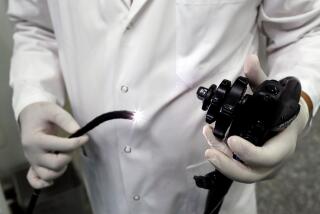Readers React: Ignore the mammogram naysayers and get screened for breast cancer
To the editor: Dr. H. Gilbert Welch is misinformed about the benefits of screening mammography. (“When screening is bad for a woman’s health,” op-ed, July 19)
The truth is, mammography saves lives. In fact, the most lives are saved when women are screened every year beginning at age 40. There has been a 35% decrease in deaths in women who have been screened in the U.S. since the 1990s.
Yes, mammography is not perfect. However, women are strong. We want to survive despite moments of anxiety.
Three-D mammography, which Welch implies has questionable benefits, actually decreases false positives associated with mammography while simultaneously increasing cancer detection. This in turn decreases costs to the healthcare system.
The concern regarding overdiagnosis is real. I agree it would be very nice to know which cancers are problematic and which ones can be dismissed. However, estimates are far lower than Welch reports.
It doesn’t make sense to stop looking for cancers altogether and leave it up to luck as to whether a tumor causes death.
Sarah M. Friedewald, MD, Chicago
The writer is division chief of the Lynn Sage Comprehensive Breast Center at Northwestern Memorial Hospital.
..
To the editor: I am not trained medically, but I am a woman who had two moderately aggressive malignant tumors removed from my breast nearly a year ago. They were not there in the previous annual screening. Routine mammography discovered these invaders, and because the disease was caught early, I still have a breast.
Most important, screening mammography revealed this disease before it had spread to the lymph nodes, which it surely would have done, so I did not have to endure chemotherapy. Screening mammography also reveals the presence of dense breast tissue, which may mask tumors.
I have grave concerns that articles suggesting screening mammography is not significantly beneficial will result in far more women requiring aggressive treatment for advanced tumors.
Janet M. Campbell, Glendora
Follow the Opinion section on Twitter @latimesopinion and Facebook
More to Read
A cure for the common opinion
Get thought-provoking perspectives with our weekly newsletter.
You may occasionally receive promotional content from the Los Angeles Times.










